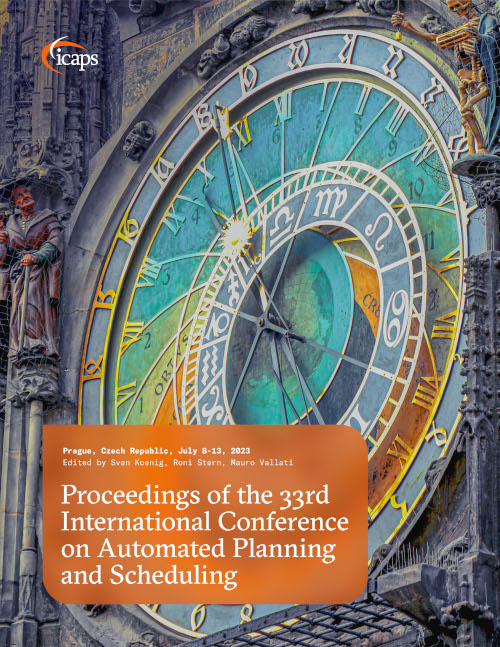Planning for Temporally Extended Goals in Pure-Past Linear Temporal Logic
DOI:
https://doi.org/10.1609/icaps.v33i1.27179Keywords:
Classical planning techniques and analysis, Knowledge representation for planning and schedulingAbstract
We study classical planning for temporally extended goals expressed in Pure-Past Linear Temporal Logic (PPLTL). PPLTL is as expressive as Linear-time Temporal Logic on finite traces (LTLf), but as shown in this paper, it is computationally much better behaved for planning. Specifically, we show that planning for PPLTL goals can be encoded into classical planning with minimal overhead, introducing only a number of new fluents that is at most linear in the PPLTL goal and no spurious additional actions. Based on these results, we implemented a system called Plan4Past, which can be used along with state-of-the-art classical planners, such as LAMA. An empirical analysis demonstrates the practical effectiveness of Plan4Past, showing that a classical planner generally performs better with our compilation than with other existing compilations for LTLf goals over the considered benchmarks.Downloads
Published
2023-07-01
How to Cite
Bonassi, L., De Giacomo, G., Favorito, M., Fuggitti, F., Gerevini, A. E., & Scala, E. (2023). Planning for Temporally Extended Goals in Pure-Past Linear Temporal Logic. Proceedings of the International Conference on Automated Planning and Scheduling, 33(1), 61-69. https://doi.org/10.1609/icaps.v33i1.27179

